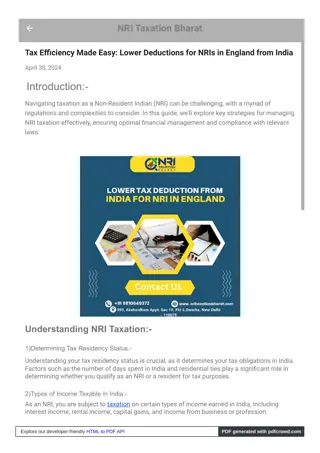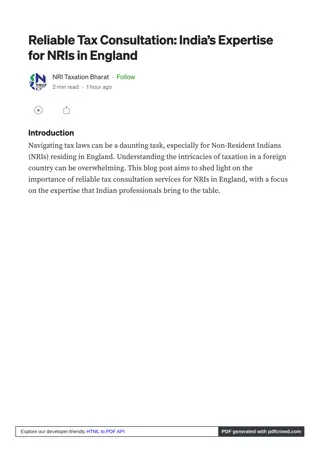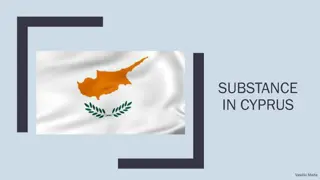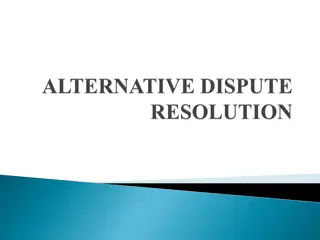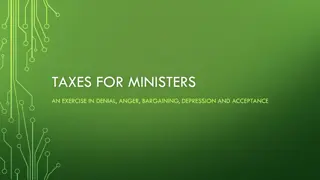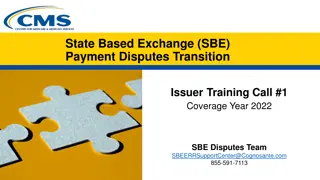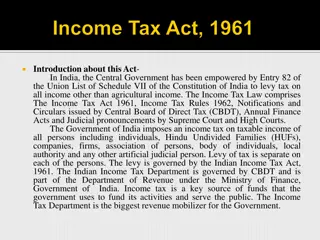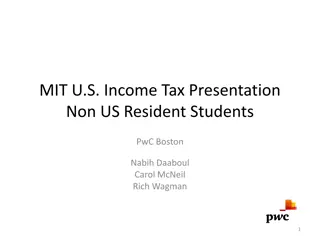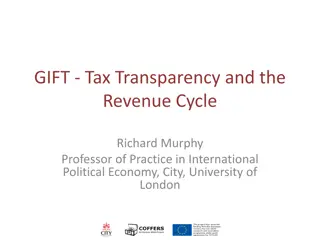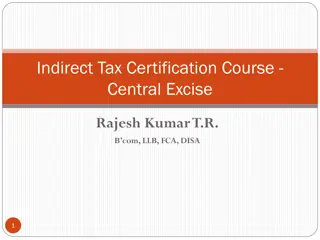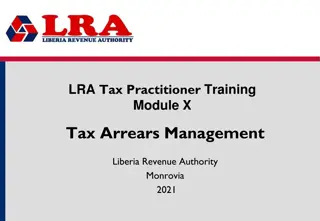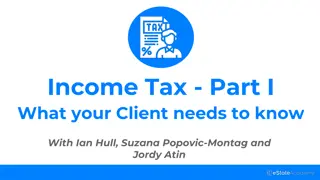Vodafone's Tax Dispute Timeline in India
The ownership structure and acquisition journey of Vodafone in India, leading to a tax dispute with the Indian tax department. The timeline covers key events, legal battles, penalties, and the final judgments from the Supreme Court.
Download Presentation

Please find below an Image/Link to download the presentation.
The content on the website is provided AS IS for your information and personal use only. It may not be sold, licensed, or shared on other websites without obtaining consent from the author.If you encounter any issues during the download, it is possible that the publisher has removed the file from their server.
You are allowed to download the files provided on this website for personal or commercial use, subject to the condition that they are used lawfully. All files are the property of their respective owners.
The content on the website is provided AS IS for your information and personal use only. It may not be sold, licensed, or shared on other websites without obtaining consent from the author.
E N D
Presentation Transcript
1992 The Hutchison Group of Hong Kong acquired interest in the mobile telecommunications industry in India, through a joint venture vehicle, Hutchison Max Telecom Ltd, (renamed Hutchison Essar Ltd- (HEL) in August, 2005); Jan 1998 The Hutchison Group Incorporation CGP Investments (Holdings) Ltd (CGP) in Cayman Islands; 2004 Hutchison Telecommunication International Ltd (HTIL) was incorporated and listed on the Hong Kong and New York Stock Exchanges. HTIL and its downstream companies (including CGP) held interest in the mobile telecommunications business in several countries including India; Dec 2006 HTIL puts its 67% stake in HEL up for sale, seeks bids from interested parties; Vodafone; Hinduja, Reliance Communications among the bidders. Feb 11,2007 Vodafone Group Plc makes a final binding offer of US $ 11.076 billion, based on an enterprise value of US $ 18.800 billion of HEL. Hutch board accepts Vodafone Offer. Mar 6, 2007 Essar files objection with FIPB to Hutch-Vodafone deal, asserts that it has a Right of First Refusal . Mar 15,2007 HTIL arrives at a settlement with JV partner Essar, pays the latter $415mn. Essar agrees to support the Hutch Vodafone deal. Mar 15,2007 The Joint Director of Income Tax (International Taxation) issues a notice under section 133(6) of the Income Tax Act, 1961 to HEL seeking information regarding the sale of stake of the Hutchison group in HEL, including the Shareholders agreements and details of the transaction for acquisition of the share capital of CGP; Aug, 2007 IT Department issues show-cause notice to VEL u/s 163(1) of the Income Tax Act, 1961 to explain why it should not be treated as a representative assesses of Vodafone International Holdings (VIH BV); Sept, 2007 IT Departments issues notice u/s. 201(1) and 201(1A) to VIH BV to show cause as to why it should not be treated as an assessee in default for failure to withhold tax; 3
Oct, 2007 Vodafone files a writ petition, orders Vodafone to submit relevant documents to IT Dept; Dec, 2008 Bombay HC quashes writ petition, orders Vodafone to submit relevant documents to IT Dept Dec, 2008 Vodafone files SLP in Supreme Court against Bombay HC Order; Jan, 2009 Supreme Court dismisses SLP, orders that tax department first pass an order on jurisdiction issue, against which Vodafone can approach the Bombay HC; May, 2010 IT Dept issues 763 pages final order, claiming jurisdiction to tax the deal. It calculates a liability of around Rs. 12000 Cr; June, 2010 Vodafone files a writ petition in Bombay HC challenging the IT Department s final order of May 2010; Sep, 2010 Bombay HC again rules in favour of IT Dept, says the target company at all times was HEL; Oct, 2010 IT Dept fixes liability of Rs. 11,297 Crore; Nov, 2010 SC directs Vodafone to deposit Rs. 2500 Cr and provide bank guarantee for Rs. 8500 Cr; March,2011 IT Dept issues penalty notice u/s.271C to Vodafone for failure to deduct tax at source; April,2011 Vodafone files SLP in Supreme Court against penalty notice. SC Orders IT dept to pass penalty order, but not to enforce it; May, 2011 IT Department passes Rs. 7900 Cr penalty order on Vodafone Aug 2,2011 Supreme Court proceedings begin; Oct 13,2011 Supreme Court proceedings conclude, judgment awaited. Jan 20, 2012 Finally Supreme Court handed down judgments. 4
Backgrouund B.V. Vodafone International Holdings (Vodafone) bought 100% shares of CGP Investments (Holdings) Ltd. (CGP) from Hutchinson group, Hong Kong (HTIL). CGP held 67% stake in Hutch Essar (India) Ltd. (Hutch) While making payment to HTIL, Vodafone did not deducted tax at source. Basic Questions of Chargeability (against Vodafone) - Lifting of Corporate Veil. - Transfer of underlying asset in India. - Relinquishment of rights in India. 5
Final Decision of Supreme Court of India Vodafone withhold tax from the payments made to HTIL. was not required to Offshore transaction of acquisition of shares of CGP International Holdings BV (VIH) from HTIL was bonafied structured foreign direct investment (FDI) investment in India, Which fell Revenue s territorial tax jurisdiction and hence transaction was not taxable by Vodafone outside India s 6
Final Decision of Supreme Court of India The enunciated by the Supreme Court in arriving at the following conclusion are as below : (A) TAX AVAOIDANCE/ EVASION AZADI BACHAO ANDOLAN Vs. McDowell : Supreme Court in Vodafone s case dealing with the contention raised on behalf of the Revenue that the decision in case of Azadi Bachao Andolan 263 ITR 706, full bench decision, need to be overruled in so far as it depart from principle laid down in earlier decision Important Principles of Law 7
Final Decision of Supreme Court of India In case of McDovell & Co Ltd. 3 SCC 230 (1985). As regards treaty shopping and/ or tax avoidance, there between Azadi Bachao Andolan and Mc Dowell and no consideration by a larger bench on the some is required. Further finally supreme court observed that genuine strategic planning had not been abandoned by any decision of the English Courts till date like RamsayRuling Craven V White 1988 3 all E.R. 495 & Westminster principle and held that the position of Azadi Bachao s continuance to prevail in terms of the vodafone s decision. is no conflict ruling would 8
Final Decision of Supreme Court of India (B)HOLDINGSTRUCTURE SEPARATE ENTITY PRINCIPLE TO BE RESPECTED : The Court explained that there is difference between having power and having persuasive position, and held that directors and not share holder s are the managers of a company and their powers are because of shareholder s influence, except where subsidiaries are created as sham. The revenue should look at the documents or the transaction in the context to which it properly belongs and as a whole instead of adopting dissecting approach. not obliterated 9
Final Decision of Supreme Court of India Supreme strategic foreign direct investment carrying to India, as an investment destination should be seen in a holistic manner. The court further observed that there is a conceptual difference between preordained transactions created for tax avoidance and a transaction which evidences participate in India. The issue of defacto vs legal control, legal rights vs participation rights etc were not material in such a situation. In short, the onus will be on the Revenue to indentify the scheme and Court concluded that investments to 10
Final Decision of Supreme Court of India its dominant purpose. The corporate business purpose of a transaction is evidence of the transaction is not undertaken as a colorable or artificial device. The stronger the evidence of device, the stronger the corporate purpose must exist to overcome the evidence of a device. (C)Interpretation of Section 9(1)(i) Whether it is provisions *Sec.9(1) of the Act deems certain Incomes to accrue or arise in India. *Sec.9(1)(i) of the Acts deems inter alia, All Income accruing or arising, whether directly or indirectly .. fact that the business a look through 11
Final Decision of Supreme Court of India through transfer of Capital Assets situate in India to accrue or arise in India and hence taxable in India. *Contention of the Revenue that Income from Sale of CGP Share would fall with in Sec. 9(1)(i) of the Act and as the said section provides for a Look through approach. indirect transfer of capital assets. The SC disagreeing with the arguments advanced by the Revenue held as under: 1. A Legal fiction has limited scope & can t be expanded by giving it purposive interpretation. Particularly when it would transform the concept of chargeability under JTL. Which cover 12
Final Decision of Supreme Court of India 2. The World Indirect qualifies income and not term transfer of capital asset. The words underlying asset do not find place in Sec.9(1)(i) & Can t be read there in. Proposed DTC Bill of 2009 & 2010 expressly provides for taxation of indirect transfer & not governed by Sec 9(1)(i). Thus, the question of providing a look through or limitation on benefits (LOB) provision in the statute or in the treaty is a matter of policy and needs to be expressly provided by way of specific legislation. 13
Final Decision of Supreme Court of India Section 195 & Sec. 163 Whether applicable to None Resident payers : Justice K.S. Radakrishnan in a separate but concurring decision, when even a step further to hold that section 195 of the Act is applicable to payments made by Resident to Non-Residents and not to payment by Non-Resident to another Non-Resident outside India. Similarly Section 163 of the Act (pursuant to which the tax authorities alleged that Vodafone RepresentativeAssessee of HTIL in India) would not have application in the facts of the case there is no transfer of capital asset situated in India. is a 14
Final Decision of Supreme Court of India (D)Whether HTIL s property rights in HEL were extinguished : The Supreme Court held that present case, when looked at holistically was concerned with the sales of shares and not with sale of assets. Applying the lookat test and without restoring to the dissecting approach extinguishment of rights, if any took place because of the transfer of the CGP Share and not by virtue of various clauses of SPA. (E)Whether acquisition of CGP share should be divorced from various other rights and entitlements following there from : 15
Final Decision of Supreme Court of India -> Court held that considering the subject matter of the transaction from a commercial and realistic perspective there was a share sale and not asset sale. A controlling interest is an incidence of ownership of shares in a company which flows out of holding of shares. -> Supreme Court ruled that CGP was not only a holding company but also enabled a smooth transaction of the business. Although there was an alternate option available, transferring the shares of CGP enable Vodafone to acquire the business smoothly. 16
Final Decision of Supreme Court of India Comments : First time in Indian Judiciary Supreme Court needs to be complemented for comprehensively analyzing the various issues, examining structure & not suspicion and taking holistic rather than Pedantic view. Lookat approach, the SC has only lookedat a few clauses in the agreements and not lookedat all relevant clauses in SPA/ SHA. Thus, Supreme Court has laid down several important and far reaching & care principles of law on Tax Planning Vs Tax Avoidance. Interpretation of Sec. 9 the investment 17
Final Decision of Supreme Court of India Comments : TDS Obligation U/s. Sec 195 163. applicability interpretation of statues. Policy towards foreign investment FDI. of 18
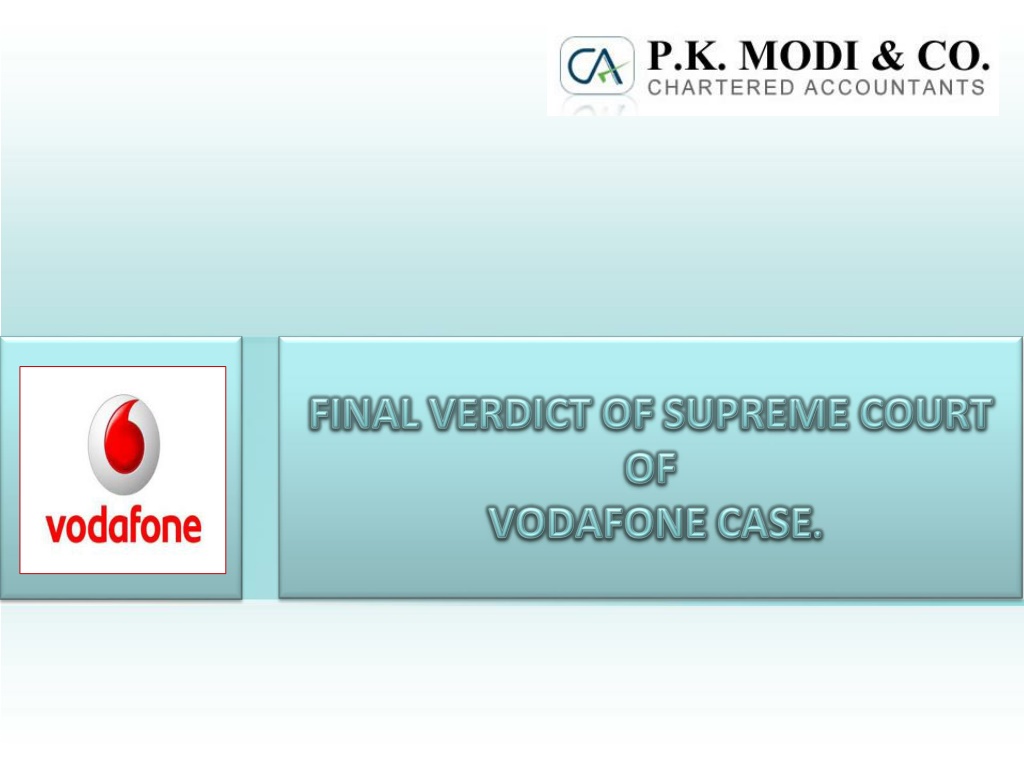


![Town of [Town Name] Real Estate Tax Rates and FY 2024 Budget Summary](/thumb/62211/town-of-town-name-real-estate-tax-rates-and-fy-2024-budget-summary.jpg)
